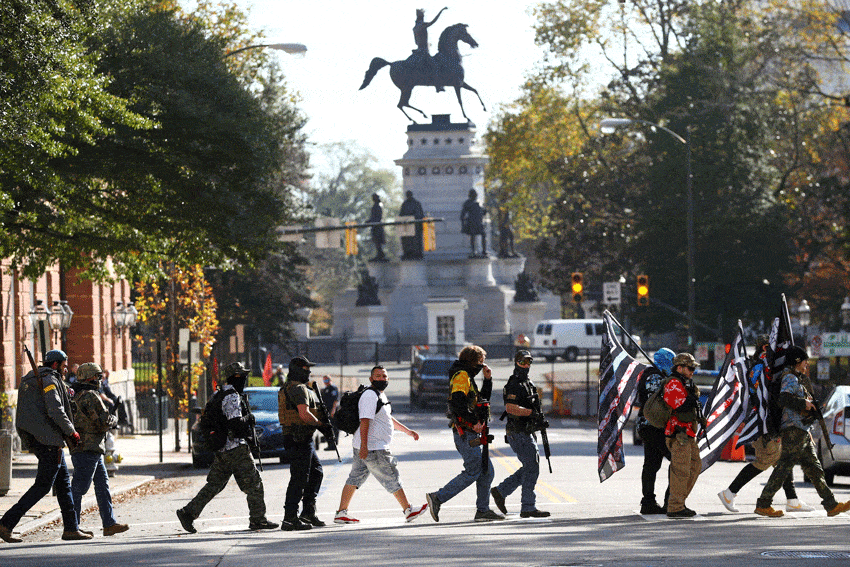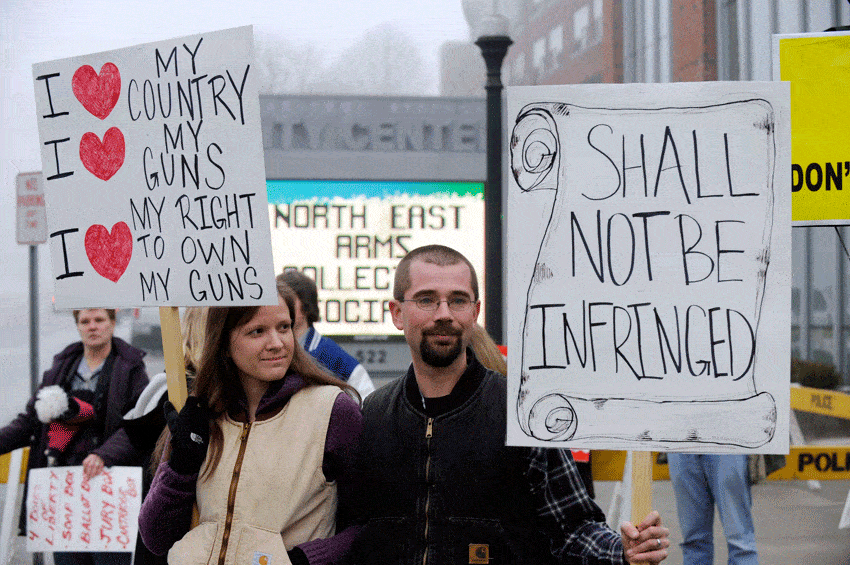
‘Thoughts and prayers’ a poor replacement for gun control
Here in the US, gun violence has now reached such a pitch that there is not just a gun massacre a day, there is (statistically speaking) slightly more than one gun massacre, 24/7/365.
There is literally no day left on the calendar when somebody in America is not remembering the moment when a mass slaughter changed their life forever, blowing apart the life of a precious husband, wife, son, daughter, or child. All that is left to America now is the terrible anticipation of which day this coming year or decade we will see the massacre that will kill and maim the most people in American history.
Such is the diseased state of American Christianity that with our distinctive love of slaughter by gun goes the insane form of piety that has become a stench in the nostrils of God and human beings known as “thoughts and prayers”.
“Thoughts and prayers” used to be an expression that meant something. In some mouths, it still does. But in the mouths of Christian Gun Cultists and their pet conservative politicians, “thoughts and prayers” is now a blasphemous code that means, “Accept our empty piety in place of any intention of making sure our gun slaughter rate never does anything but climb. Because the gold of the arms industry means more to us than a million butchered children at Sandy Hook Elementary School and every other killing zone across America.”

The use of piety as a prophylactic against, rather than a preparation for, obedience to God is a problem as old as the Old Testament: “Your new moons and your appointed feasts/my soul hates;/they have become a burden to me,/I am weary of bearing them./When you spread forth your hands,/I will hide my eyes from you;/even though you make many prayers,/I will not listen;/your hands are full of blood./Wash yourselves; make yourselves clean;/remove the evil of your doings/from before my eyes;/cease to do evil,/learn to do good;/seek justice,/correct oppression;/defend the fatherless,/plead for the widow.” (Isaiah 1:14-17)
Likewise, Jesus warns us, “Not every one who says to me, ‘Lord, Lord,’ shall enter the kingdom of heaven, but he who does the will of my Father who is in heaven. On that day many will say to me, ‘Lord, Lord, did we not prophesy in your name, and cast out demons in your name, and do many mighty works in your name?’ And then will I declare to them, ‘I never knew you; depart from me, you evildoers.’” (Matthew 7:21-23).
There are two chief reasons the use of piety as a prophylactic against obedience to God is so evil. The first is, of course, that when we say one thing and do the opposite, non-believers are watching and conclude from our hypocrisy that if we don’t believe in Jesus enough to bother obeying him, why should they?
the real purpose of prayer and piety is to be a prologue to obedience
The second and even greater reason is that when we make clear that we know what God wills by our words, but then deliberately disobey him, we harden and sear our consciences, leading to a loss of the life of grace in the soul. In short, we work to damn ourselves through the perversion of our own will and put ourselves beyond the reach of grace, a truly terrible choice that means nothing less than hell itself for all eternity if we persist.
In contrast, the real purpose of prayer and piety is to be a prologue to obedience. We imitate the steps of Jesus in the liturgy by obeying him there so that we can continue to obey him in the wide world after we leave Mass. As Pope Francis put it, “You pray for the hungry. Then you feed them. This is how prayer works.”
All of this is simply the Incarnation at work: the Word becoming made flesh in our lives as he was made flesh at Bethlehem. It is not a question of faith or works but of faith in Christ expressing itself in works of love. As Paul puts it, “Work out your own salvation with fear and trembling; for God is at work in you, both to will and to work for his good pleasure” (Php 2:12–13).
Related:
